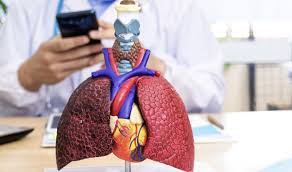A cardiologist is a physician who specializes in diagnosing, treating, and preventing diseases of the heart and blood vessels. This expertise covers conditions such as coronary artery disease, heart rhythm disorders, and heart failure. Cardiologists complete advanced training beyond medical school, focusing on the cardiovascular system. They use diagnostic tools like echocardiograms, stress tests, and cardiac catheterization to assess heart function. Many also work closely with other healthcare providers to coordinate comprehensive care. Their role is not limited to treating illness; they also guide patients in reducing risk factors for future heart problems. By combining clinical knowledge with patient education, cardiologists play a central role in maintaining cardiovascular health.
How Do Cardiologists Support Prevention?
Prevention begins with identifying risk factors that may lead to heart disease. A cardiologist evaluates medical history, lifestyle, and genetic predispositions to create tailored recommendations. These can include adjustments in diet, exercise routines, and medication management. Preventive care may also involve monitoring blood pressure, cholesterol, and other indicators over time.
Early detection of changes in these measures allows for timely interventions. By addressing risks before they develop into more serious conditions, cardiologists help patients maintain better long-term outcomes. Prevention is a continuous process that benefits from regular visits and open communication between patient and provider.
Which Conditions Do Cardiologists Treat?
Cardiologists treat a wide range of cardiovascular issues. These include blockages in the arteries, irregular heart rhythms, valve disorders, and congenital heart defects. They also manage chronic conditions like high blood pressure and elevated cholesterol. In emergencies, such as a heart attack, cardiologists provide immediate, often life-saving interventions.
Many specialize further in areas such as interventional cardiology, electrophysiology, or heart failure management. Each subspecialty brings a focused approach to diagnosis and treatment, allowing patients to receive targeted care. The ability to manage both acute and chronic issues makes the cardiologist’s role vital in comprehensive heart health care. Some people are referred to a cardiologist after abnormal test results or symptoms such as chest pain, shortness of breath, or palpitations. Others may seek care because of a family history of heart disease or multiple risk factors.
Seeing a cardiologist can also be a proactive choice for those with conditions like diabetes or high blood pressure, which increase cardiovascular risk. In certain cases, primary care providers recommend a consultation for more specialized assessment. Regular check-ins with a cardiologist can help track heart health over time, even if no urgent problems are present. Early involvement often improves outcomes and may prevent serious events. Knowing when to seek specialized care is a step in protecting cardiovascular health.
Consult a Cardiologist
If you are considering a cardiology appointment, start by identifying your concerns and preparing relevant health records. This can include recent lab results, imaging studies, and a list of medications. Choose a cardiologist whose expertise matches your needs, whether for general evaluation or a specific heart condition. Ask about their approach to prevention and ongoing care during your initial visit. Building a relationship with a cardiologist can support both immediate treatment goals and long-term heart health. Regular follow-up appointments and adherence to care plans strengthen the impact of the partnership. Taking this step can help you protect your heart and maintain a healthier future.

